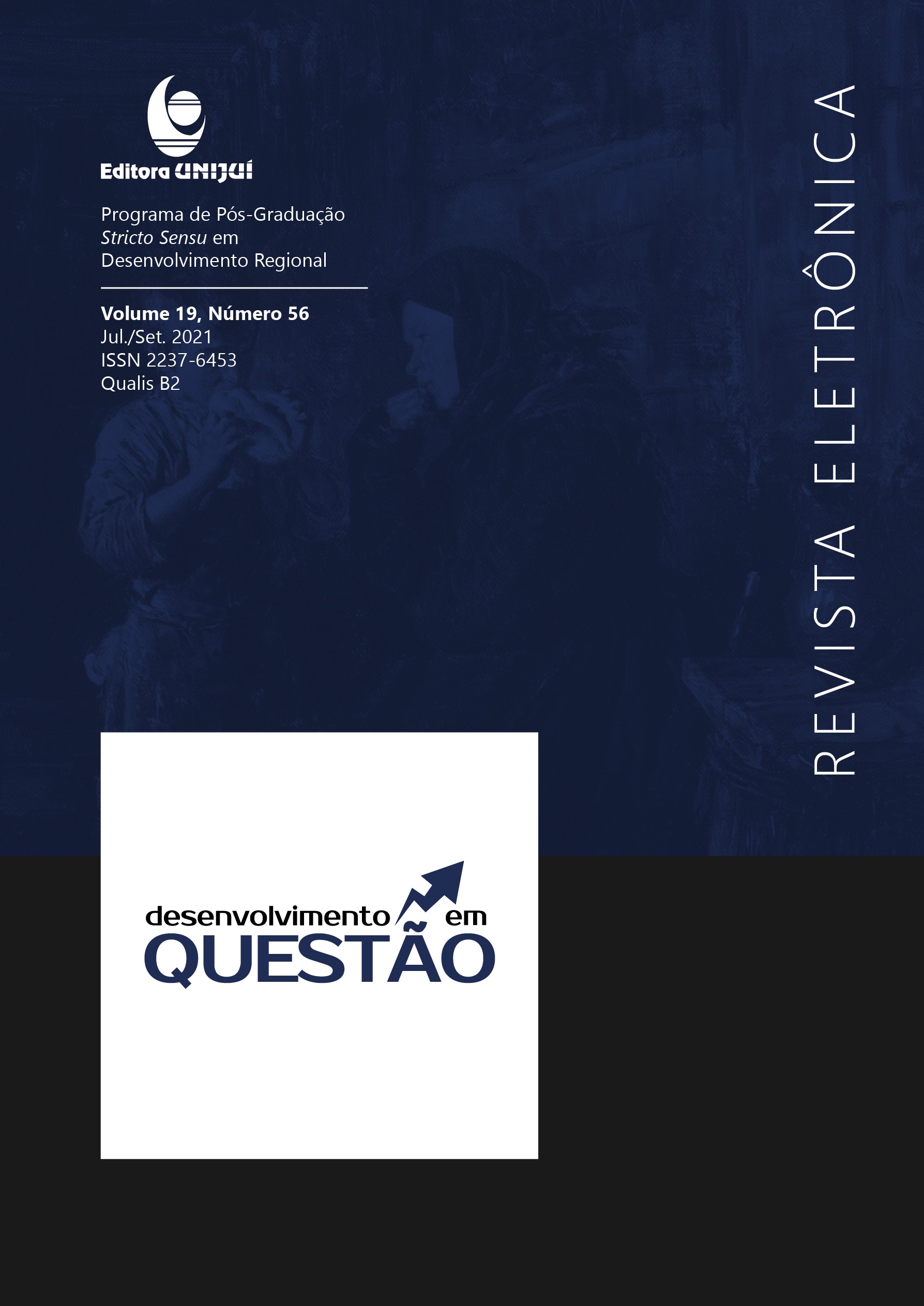A Importância da Pecuária para o Desenvolvimento Regional no Estado do Rio Grande do Norte: Uma Análise de Matriz Insumo-Produto
THE IMPORTANCE OF LIVESTOCK FOR REGIONAL DEVELOPMENT IN RIO GRANDE DO NORTE STATE: AN ANALYSIS OF MATERIAL INPUT-OUTPUT
DOI:
https://doi.org/10.21527/2237-6453.2021.56.11241Palavras-chave:
Insumo-produto. Desenvolvimento Regional. Pecuária. Estado do Rio Grande do Norte.Resumo
Este trabalho objetiva analisar a relevância da pecuária para o desenvolvimento regional do Estado do Rio Grande do Norte (RN), a partir de suas implicações para a economia, sociedade e governo, sob o prisma da geração de emprego, massa salarial e geração de produção. Utiliza da metodologia exploratório-descritiva a partir da análise da matriz insumo-produto, desenvolvida por Guilhoto. Constata a importância estratégica apresentada pela pecuária para fomentar o desenvolvimento socioeconômico. Conclui que a criação de bovinos é relevante para o desenvolvimento local, principalmente para geração de emprego direto e para geração de produção, destacando-se as atividades de produção do leite e seus derivados. Comprova que o abate de suínos desempenha papel primordial para a geração de produção em toda a economia. Observa também a relevância de outros setores produtivos do Estado do RN, em particular a cana-de-açúcar para a geração de empregos e a educação pública como componente para a geração de salários.
Downloads
Publicado
Como Citar
Edição
Seção
Licença
Ao publicar na Revista Desenvolvimento em Questão, os autores concordam com os seguintes termos:
Os trabalhos seguem a licença Creative Commons Atribuição 4.0 Internacional (CC BY 4.0), que permite:
Compartilhar — copiar e redistribuir o material em qualquer meio ou formato;
Adaptar — remixar, transformar e criar a partir do material para qualquer fim, inclusive comercial.
Essas permissões são irrevogáveis, desde que respeitados os seguintes termos:
Atribuição — Atribuição — os autores devem ser devidamente creditados, com link para a licença e indicação de eventuais alterações realizadas.
Sem restrições adicionais — não podem ser aplicadas condições legais ou tecnológicas que restrinjam o uso permitido pela licença.
Avisos:
A licença não se aplica a elementos em domínio público ou cobertos por exceções legais.
A licença não garante todos os direitos necessários para usos específicos (ex.: direitos de imagem, privacidade ou morais).
A revista não se responsabiliza pelas opiniões expressas nos artigos, que são de exclusiva responsabilidade dos autores. O Editor, com o apoio do Comitê Editorial, reserva-se o direito de sugerir ou solicitar modificações quando necessário.
Somente serão aceitos artigos científicos originais, com resultados de pesquisas de interesse que não tenham sido publicados nem submetidos simultaneamente a outro periódico com o mesmo objetivo.
A menção a marcas comerciais ou produtos específicos destina-se apenas à identificação, sem qualquer vínculo promocional por parte dos autores ou da revista.
Contrato de Licença (para artigos publicados a partir de 2025): Os autores mantêm os direitos autorais sobre seu artigo, e concedem a Revista Desenvolvimento em Questão o direito de primeira publicação.











